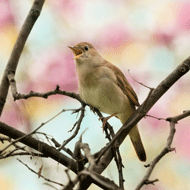
RSPB releases song bird track to raise awareness of wildlife threats
The UK is in danger of ‘sleepwalking into a natural tragedy’, the RSPB has warned, as a new survey reveals that just 15 per cent of people are aware of the crisis facing our wildlife.
Worryingly, the charity said over a quarter of respondents (27 per cent) mistakenly thought nature was doing well, while one in three young people were unaware that the UK has lost more than 40 million birds in the past 50 years.
Conversely, 82 per cent of people said bird song makes them feel positive. When presented with the troubling facts about declining numbers of wild birds, half (49 per cent) said they were upset, a third (31 per cent) said they were angry and 84 per cent said the government should do more. Over a third of young people want to do something to save nature.
Today (26 April), the RSPB released a track of pure bird song into the charts to raise awareness of what we may lose if nothing is done to halt the declines.
Martin Harper, RSPB’s director of conservation, said: “The signs are all around us that something is not right, that nature is falling silent and you only need to stop and listen to find the beautiful bird song that should be the background music to our life is absent.
"But no one is talking about the crisis facing wildlife and nature in the UK. We all need to start talking about this, and the Let Nature Sing track is a good starting point as it perfectly highlights the music we risk losing.
“Wildlife and our natural world can recover, it can be saved for future generations, but we need more people to talk about the issue and how much something as simple and wonderful as bird song means to each of us. Because if we do not start talking about the threats facing nature the inspiration behind so much of our music, poetry and literature may go silent.”



 The latest
The latest